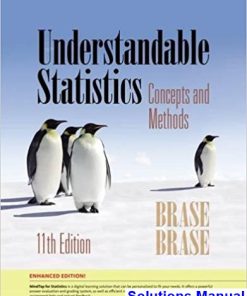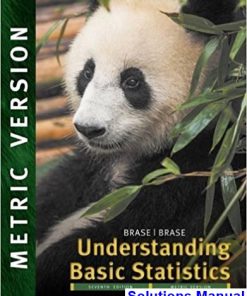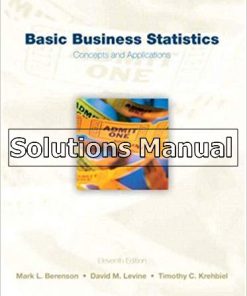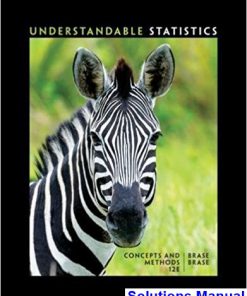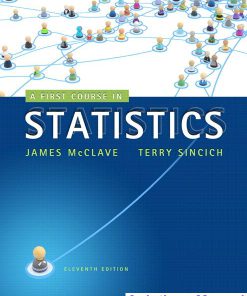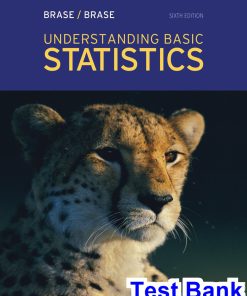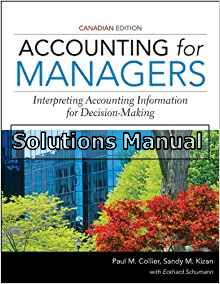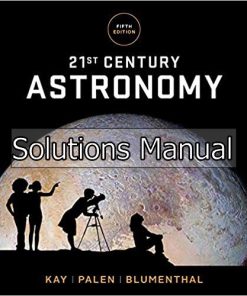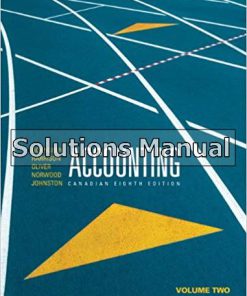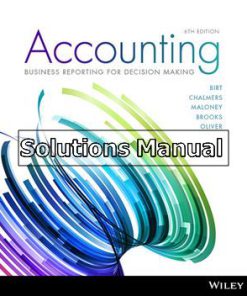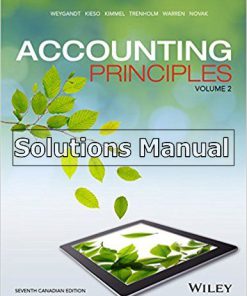Understandable Statistics 11th Edition Brase Solutions Manual
You may also like
Instant download Understandable Statistics 11th Edition Brase Solutions Manual pdf docx epub after payment.

Product details:
- ISBN-10 : 128546091X
- ISBN-13 : 978-1285460918
- Author: Charles Brase
UNDERSTANDABLE STATISTICS: CONCEPTS AND METHODS, Eleventh Edition, is a thorough yet accessible program designed to help readers overcome their apprehensions about statistics. The authors provide clear guidance and informal advice while showing the links between statistics and the world. To reinforce this approach–and make the material interesting as well as easier to understand–the book integrates real-life data from a variety of sources, including journals, periodicals, newspapers, and the Internet. Readers also have opportunities to develop their critical-thinking and statistical literacy skills through special features and exercises throughout the text. The use of graphing calculators, Excel, MINITAB, and SPSS is covered for those who wish to learn about these helpful tools.
Understandable Statistics Concepts and Methods Enhanced 11th Edition Brase Solutions Manual
Table of contents:
- Chapter 1: Getting Started
- 1: Concept Explorations (4)
- 1.1: What Is Statistics? (16)
- 1.2: Random Samples (11)
- 1.3: Introduction to Experimental Design (10)
- 1: Chapter Review Problems (10)
- 1: Concept Questions (16)
- 1: Labs (6)
- 1: Test Bank (30)
- Chapter 2: Organizing Data
- 2: Concept Explorations (2)
- 2.1: Frequency Distributions, Histograms, and Related Topics (39)
- 2.2: Bar Graphs, Circle Graphs, and Time-Series Graphs (12)
- 2.3: Stem-and-Leaf Displays (12)
- 2: Chapter Review Problems (11)
- 2: JMP Simulations (3)
- 2: Concept Questions (10)
- 2: Labs (5)
- 2: Test Bank (73)
- Chapter 3: Averages and Variation
- 3: Concept Explorations (3)
- 3.1: Measures of Central Tendency: Mode, Median, and Mean (38)
- 3.2: Measures of Variation (43)
- 3.3: Percentiles and Box-and-Whisker Plots (17)
- 3: Chapter Review Problems (16)
- 3: Cumulative Review Problems (24)
- 3: JMP Simulations (2)
- 3: Concept Questions (10)
- 3: Labs (6)
- 3: Test Bank (91)
- Chapter 4: Elementary Probability Theory
- 4: Concept Explorations (2)
- 4.1: What Is Probability? (21)
- 4.2: Some Probability Rules—Compound Events (40)
- 4.3: Trees and Counting Techniques (35)
- 4: Chapter Review Problems (16)
- 4: Concept Questions (8)
- 4: Labs (5)
- Chapter 5: The Binomial Probability Distribution and Related Topics
- 5: Concept Explorations (2)
- 5.1: Introduction to Random Variables and Probability Distributions (30)
- 5.2: Binomial Probabilities (48)
- 5.3: Additional Properties of the Binomial Distribution (54)
- 5.4: The Geometric and Poisson Probability Distributions (38)
- 5: Chapter Review Problems (32)
- 5: Concept Questions (22)
- 5: Labs (5)
- 5: Test Bank (37)
- Chapter 6: Normal Curves and Sampling Distributions
- 6: Concept Explorations (4)
- 6.1: Graphs of Normal Probability Distributions (21)
- 6.2: Standard Units and Areas Under the Standard Normal Distribution (100)
- 6.3: Areas Under Any Normal Curve (91)
- 6.4: Sampling Distributions (9)
- 6.5: The Central Limit Theorem (42)
- 6.6: Normal Approximation to Binomial Distribution and to p̂ Distribution (32)
- 6: Chapter Review Problems (37)
- 6: Cumulative Review Problems (19)
- 6: Concept Questions (14)
- 6: Labs (5)
- 6: Test Bank (180)
- Chapter 7: Estimation
- 7: Concept Explorations (5)
- 7.1: Estimating μ When σ Is Known (31)
- 7.2: Estimating μ When σ Is Unknown (56)
- 7.3: Estimating p in the Binomial Distribution (67)
- 7.4: Estimating μ1 – μ2 and p1 – p2 (45)
- 7: Chapter Review Problems (31)
- 7: JMP Simulations (13)
- 7: Concept Questions (18)
- 7: Labs (6)
- 7: Test Bank (30)
- Chapter 8: Hypothesis Testing
- 8: Concept Explorations (5)
- 8.1: Introduction to Statistical Tests (18)
- 8.2: Testing the Mean μ (52)
- 8.3: Testing a Proportion p (49)
- 8.4: Tests Involving Paired Differences (Dependent Samples) (45)
- 8.5: Testing μ1 – μ2 and p1 – p2 (Independent Samples) (61)
- 8: Chapter Review Problems (30)
- 8: JMP Simulations (22)
- 8: Concept Questions (20)
- 8: Labs (6)
- 8: Test Bank (240)
- Chapter 9: Correlation and Regression
- 9: Concept Explorations (4)
- 9.1: Scatter Diagrams and Linear Correlation (34)
- 9.2: Linear Regression and the Coefficient of Determination (48)
- 9.3: Inferences for Correlation and Regression (24)
- 9.4: Multiple Regression (7)
- 9: Chapter Review Problems (11)
- 9: Cumulative Review Problems (14)
- 9: JMP Simulations (8)
- 9: Concept Questions (18)
- 9: Labs (6)
- 9: Test Bank (114)
- Chapter 10: Chi-Square and F Distributions
- 10: Concept Explorations (3)
- 10.1: Chi-Square: Tests of Independence and of Homogeneity (27)
- 10.2: Chi-Square: Goodness of Fit (33)
- 10.3: Testing and Estimating a Single Variance or Standard Deviation (12)
- 10.4: Testing Two Variances (13)
- 10.5: One-Way ANOVA: Comparing Several Sample Means (19)
- 10.6: Introduction to Two-Way ANOVA (8)
- 10: Chapter Review Problems (22)
- 10: JMP Simulations (12)
- 10: Concept Questions (16)
- 10: Labs (6)
- 10: Test Bank (79)
- Chapter 11: Nonparametric Statistics
- 11: Concept Explorations (2)
- 11.1: The Sign Test for Matched Pairs (15)
- 11.2: The Rank-Sum Test (13)
- 11.3: Spearman Rank Correlation (13)
- 11.4: Runs Test for Randomness (14)
- 11: Chapter Review Problems (10)
- 11: Cumulative Review Problems (7)
- 11: Concept Questions (6)
- 11: Labs (6)
- 11: Test Bank (1)
- Chapter A: Appendices
- A.1: Bayes’s Theorem
- A.2: The Hypergeometric Probability Distribution
- Chapter PJT: Project
- PJT.1: Project (4)
People also search:
understanding statistics and experimental design
understanding statistical analysis
understanding statistics a guide for medical students
understanding ap statistics
understanding ancillary statistics
understanding-advanced-statistics-player-efficiency-rating
easy to understand statistics book

